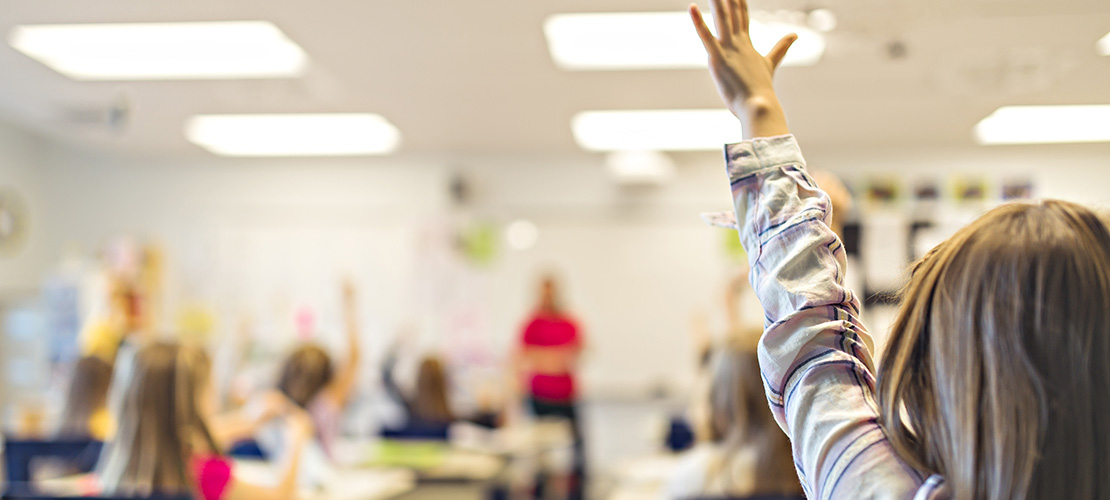In January 2023, HELP hosted a 2-part webinar series presented by internationally renowned social and emotional learning (SEL) scholar and former HELP Director Dr. Kimberly Schonert-Reichel, alongside researchers from the SEL Research Lab. The following guest column is a contribution from Dr. Denise Buote, SEL Research Lab Team Member, highlighting some key messages from the webinar series, along with links to the webinar recordings, presentation slides, and other related resources.
What is Social and Emotional Learning?
Social and emotional learning (SEL) is the process through which all young people and adults acquire and apply the knowledge, skills, and attitudes to:
- Develop healthy identities
- Manage emotions
- Achieve personal and collective goals
- Feel and show empathy and compassion for others
- Establish and maintain supportive relationships
- Make responsible and caring decisions
To find out more, visit Collaborative for Academic, Social, and Emotional Learning (CASEL)
As we emerge from a difficult three years of the global pandemic, SEL is even more critical than ever before. Recent findings point to concerning trends, including the following:
- 71% of parents reported that the pandemic had taken a toll on their child’s mental health (National survey by Lurie Children’s Hospital, 2022)
- 44% of high school students reported feeling sad or hopeless in the past year (CDC, 2022)
- 52% of kindergarten to Grade 12 teachers reported significant burnout (Gallup Poll, 2022)
- 40% of kindergarten to Grade 12 teachers report that they were more likely to leave the profession than before the pandemic (Gadermann et al., 2021)
Recent Early Development Instrument (EDI) data in BC, which examines kindergarten children’s ability to meet age-appropriate developmental expectations, found that 1 in 3 children have developmental vulnerabilities, with a particularly worrisome trend in emotional maturity and social competence. Further evidence from the Middle Development Instrument (MDI) in BC found that students reported declining well-being from Grade 4 to Grade 7.
The Path Forward
Despite the situation we find ourselves in, we have a path forward that is supported by a large body of SEL research. as well as an emerging body of research on educator well-being and how educator needs are growing. We know that educators’ well-being is inextricably linked to their students’ well-being (Oberle & Schoner-Reichl, 2016).
We also understand that deep change requires a systemic approach to SEL – an approach that ‘creates equitable learning conditions that actively involve all Pre-K to Grade 12 students in learning and practicing social, emotional, and academic competencies’ (Mahoney et al., 2021). Creating these conditions requires that we align our policies, resources, and actions at the school, district, and provincial levels to build the capacities of adults. This allows the creation of environments that are caring and inclusive, thereby supporting everyone in the educational system — not only youth, but also the adults who surround them.
We have much to be proud of in BC, including the embedding of SEL into policy and curriculum through the Mental Health in Schools Strategy as well as the BC Core Competencies, which outline sets of intellectual, personal, social and emotional proficiencies to support students in becoming deep, lifelong learners.
We invite you to reflect on how you have contributed to this effort in supporting young people to develop these skills to help them flourish. Whether you work directly with students or with the adults who care for young people, we all have such an important to play. We encourage you to celebrate those successes, and continue on this journey with us!
New Resources, March 2023 *JUST ADDED*
SEL Brief for Educators — (FOR EDUCATORS) An overview the latest research, practice and policy in the field of social and emotional learning.
SEL Caregiver Briefs: Emotion Management — (FOR PARENTS/CAREGIVERS) Evidence-based information and strategies to support the development of emotion management, a skill that is critical across the lifespan. Available in several languages.
SEL Caregiver Resources Sheet — (FOR PARENTS/CAREGIVERS) A list of high quality resources for further learning about social and emotional development.
MindUP Research Summary — Highlights the 2021-2022 implementation findings and selected outcomes for the MindUP for Middle School Program from one school district in British Columbia.
Evaluating the MindUP Middle School Program — A report with more in-depth details about the implementation findings and selected outcomes for the MindUP for Middle School Program that was implemented in one school district in British Columbia during the 2021-2022 school year.
Webinar #1 — January 12, 2023
The State of Social and Emotional Learning: What do We Know? Where do We Go from Here?
Access presentation slides here.
Presenters:
Kimberly A. Schonert-Reichl, Ph.D., NoVo Foundation Endowed Chair in Social and Emotional Learning, University of Illinois at Chicago
Dr. Molly Lawlor, Principal Scientific Advisor for MindUP
Moderated by:
Maureen Dockendorf, Strategic Consultant at the BC Ministry of Education and Childcare
Webinar #2 — January 26, 2023
Implementing a Mindfulness-Based Social and Emotional Learning Program with Early Adolescents During COVID: Lessons from the Field
Access presentation slides here.
Presenters:
Kimberly A. Schonert-Reichl, Ph.D., NoVo Foundation Endowed Chair in Social and Emotional Learning, University of Illinois at Chicago
Jenna Whitehead, Ph.D., Research Associate, Human Early Learning Partnership, University of British Columbia
Rebecca Baelen, Ph.D., Postdoctoral Research Associate, University of Illinois at Chicago
Moderated by:
Danielle Carter-Sullivan, Executive Director, BC Ministry of Education and Child Care
Other Resources
Social-Emotional Learning: What Really Works (Education Week)
“Evidence-Based” vs. “Research-Based”: Understanding the Differences (Aperture Education)
Calm, Clear, and Kind: What Students Want From Their Teachers (Greater Good Magazine)
A Sampling of the Literature on Social, Emotional, and Academic Development (Aspen Institute)
